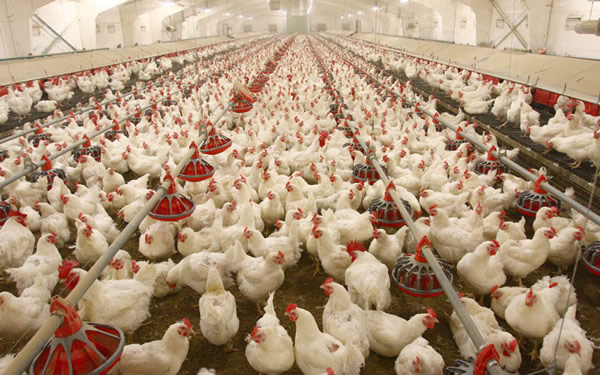As a result of poor working capital to sustain their business operations, over 10,000 farmers in Kaduna might be leaving agriculture. This was revealed by the Chairman of Poultry Association of Nigeria (PAN) in Kaduna State, Mr. Musa Bala. While appealing to the state government to assist them with soft loans, he lamented that paucity of funds was a major challenge for the more than 3,000 members of the association, hence why many of them cannot meet market demand. In his words; “Members of the association currently supply about 70,000 crates of eggs and 40,000 birds weekly, which is grossly inadequate for the increasing market demand.
“More than 10,000 poultry farmers in Kaduna State might quit the business because of low working capital. Members of the association currently supply about 70,000 crates of eggs and 40,000 birds weekly, which is grossly inadequate for the increasing market demand’’, Bala stated. He urged the state government to take a cue from Central Bank of Nigeria’s Anchor Borrowers’ Programme for rice farmers and apply same for poultry farmers. He expressed confidence that if such programme was applied, PAN members would meet the huge gap in the supply chain of poultry products in the state. The PAN Chairman added that members also faced challenges of power supply resulting in their inability to freeze processed birds. Bala also used the opportunity to call for partnership with private investors in order to establish a one-stop-shop to enable farmers preserve frozen chicken and control supply for doing so would support farmers in keeping prices consistent and meeting the six output cycles, every year.
Earlier in 2022, poultry farmers in Kaduna State had urged the state government to support its members with micro-credit facilities to expand their businesses and to also meet market demands. Bala, while fielding interview questions from journalists, had insisted that the production level was low and that government’s intervention, through making resources available, would make a huge impact on the lives of thousands of youths and farmers at large. He identified the absence of clear regulations, frequent disease outbreaks, and high cost of feed as some of the major challenges affecting poultry farming in the state. The demand for loan support for poultry farmers is not peculiar to Kaduna State alone, it appears to be a common situation in few other states.
For instance, some poultry farmers in the Federal Capital Territory (FCT) in 2018 had appealed to the government to support them with soft loans to boost their business, stating that poultry farming in Nigeria was probably one of the most lucrative farming businesses to do, but it requires adequate funding to thrive. The farmers had lamented that they were not producing enough poultry products because of inadequate funding. Also, in 2015, poultry farmers in Asaba, Delta State had cried out to the state government to support them with interest-free loans, to enable them expand their businesses. The farmers told the News Agency of Nigeria (NAN) that getting support from state and local governments would lead to expansion and growth of poultry farming in the state. In 2009, some Ogun State poultry farmers had appealed to the government to revive the agriculture sector in the country by allocating loans to small scale farmers in livestock farming, especially the poultry sector and not just crop farmers.



